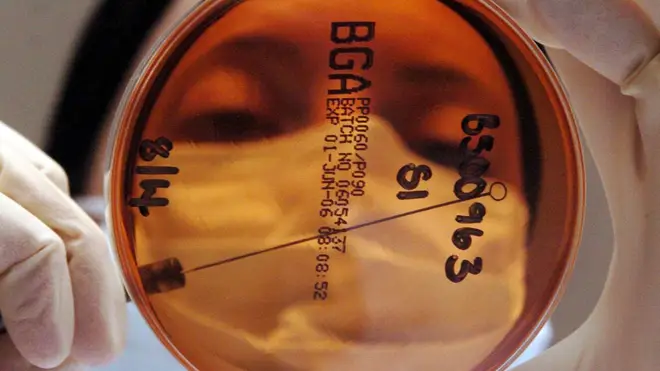
Iain Dale 7pm - 10pm
23 September 2021, 00:14

Experts now hope to test the drug combination in full clinical trials.
Scientists have used artificial intelligence (AI) to create a drug regime for children with a type of deadly brain cancer, where survival rates have not improved for 50 years.
Diffuse intrinsic pontine glioma (DIPG) is a rare and fast-growing type of brain tumour in children.
These types of tumours are difficult to remove surgically because they are diffuse, which means they do not have well-defined borders suitable for operations.
A quarter of children with DIPG have a mutation in a gene known as ACVR1, but there are currently no treatments approved to target this mutation.
In a new study, scientists at the Institute of Cancer Research, London (ICR), and the Royal Marsden NHS Foundation Trust were able to use AI to discover that combining the drug everolimus with another called vandetanib could enhance vandetanib’s capacity to pass through the blood-brain barrier in order to treat the cancer.
The combination has proved effective in mice and has been initially tested on four children.
Experts now hope to test the drug combination on a wider group of children in clinical trials.
The study showed that combining the two drugs increased the amount of vandetanib in the brains of mice with DIPG by 56%.
The treatment was also able to extend survival in mice by 14% compared with those receiving a standard control treatment.
The team behind the research said the study shows how AI could open up new avenues for cancer treatment by spotting new ways of combining existing medicines.
Both the drugs in the study are already approved to treat other types of cancer.
Chris Jones, professor of paediatric brain tumour biology at the ICR, said: “DIPG is a rare and aggressive childhood brain cancer, and survival rates have not changed over the past 50 years so we desperately need to find new treatments for this disease.
“Our study demonstrates just how much AI can bring to drug discovery for cancers like DIPG, in proposing new treatment combinations that would not have been obvious to people.
“The AI system suggested using a combination of two existing drugs to treat some children with DIPG – one to target the ACVR1 mutation, and the other to sneak the first past the blood-brain barrier.
“The treatment extended survival when we tested it in a mouse model, and we have already started testing it out in a small number of children.
“We still need a full-scale clinical trial to assess whether the treatment can benefit children, but we’ve moved to this stage much more quickly than would ever have been possible without the help of AI.”
The initial plan for the study came from BenevolentAI – a company that has built an AI drug discovery platform.
Researchers at the ICR worked with those from BenevolentAI to use the platform to identify drugs that could be used to target ACVR1 mutations in DIPG.
The platform hosts a knowledge graph that contains all publicly available biomedical data, as well as further information that BenevolentAI’s machine learning system has ingested and “read” from scientific articles.
Scientists were able to explore the information in the graph and uncover insights they would not have been able to find using human thinking alone.
Dr Fernando Carceller, consultant in paediatric and adolescent neuro-oncology at the Royal Marsden NHS Foundation Trust, and leader of the paediatric and adolescent neuro-oncology and drug development team at the ICR, said: “This encouraging research highlights the possibilities of harnessing artificial intelligence to find better cures for childhood cancers.
“Close collaboration between scientists at the ICR and clinicians at the Royal Marsden made possible this bench-to-bedside approach.
“The clinical results are too preliminary as to draw firm conclusions, but we are working to take this combination forward in a clinical trial for children with ACVR1-mutant DIPG.”
Professor Peter Richardson, vice-president for pharmacology at BenevolentAI, said: “AI-enhanced approaches are already proving their value in expanding researchers’ capabilities to find innovative new treatment approaches – be it through uncovering new therapeutics or repurposing existing ones – not only in DIPG, but also other diseases in the future.”
The research is published in the journal Cancer Discovery, with funding from (among others) Brain Research UK, the DIPG Collaborative, Children with Cancer UK and the Royal Marsden Cancer Charity.